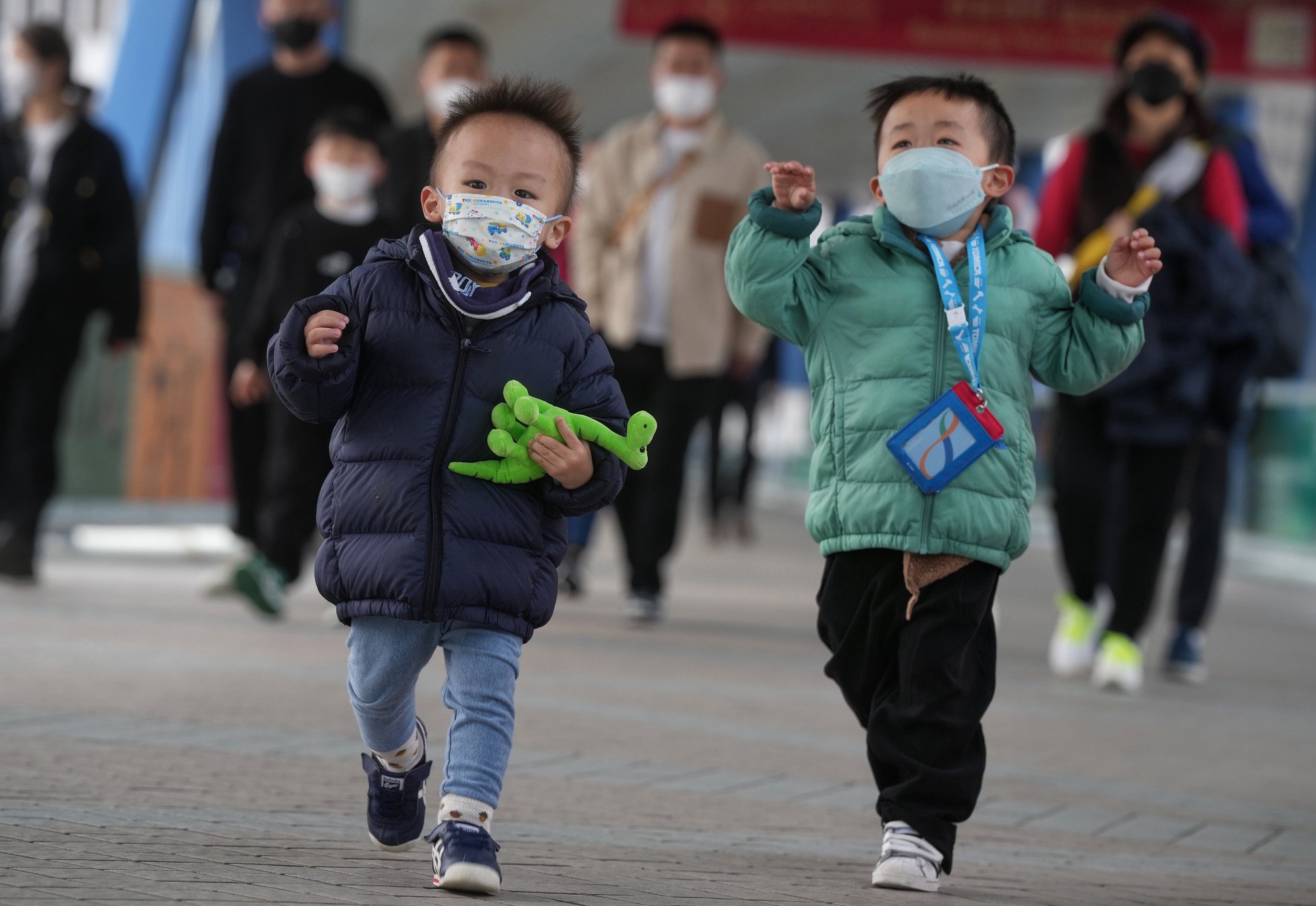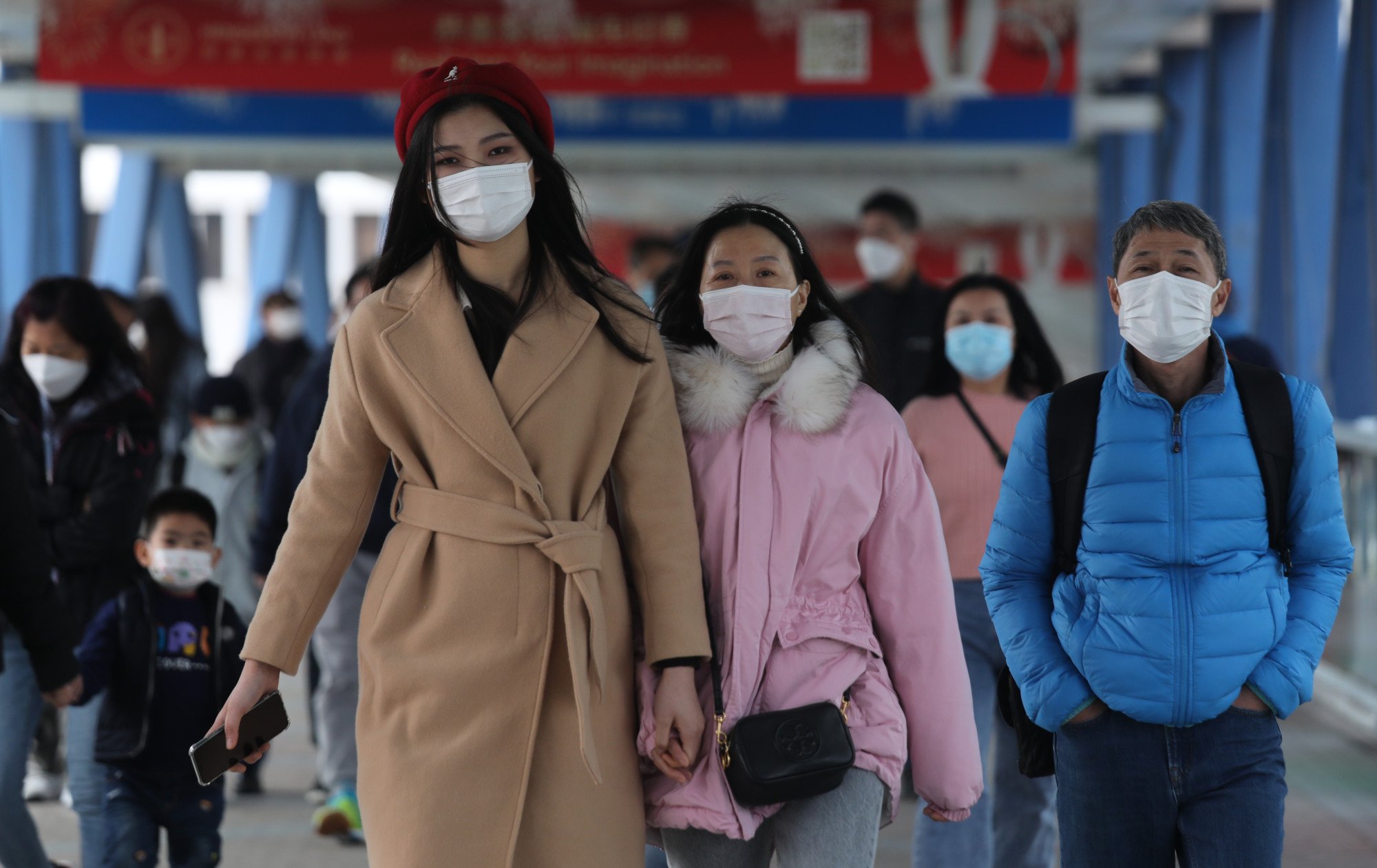Hong Kong could experience a warmer and wetter winter this year, the city’s weather forecaster said as temperatures plummeted by seven points to a minimum of 15 degrees Celsius (59 Fahrenheit) on Friday.
The Observatory said it logged temperatures of around 15 degrees in urban areas in the morning, marking a six to seven-point drop compared with Thursday, with the mercury dipping even further in the New Territories.
Do you have questions about the biggest topics and trends from around the world? Get the answers with SCMP Knowledge, our new platform of curated content with explainers, FAQs, analyses and infographics brought to you by our award-winning team.
“Under the influence of an intense northeast monsoon, the weather is generally fine over the coast of Guangdong,” the forecaster said. “It became cool appreciably. The maximum temperature will be around 22 degrees during the day.”

It added the city would experience fresh northerly winds throughout Friday, with strong offshore and occasional gales expected on high ground.
Friday’s minimum temperature was lower than the Observatory’s previous forecast of 17 degrees.
In Lau Fau Shan, located in the northern New Territories, the mercury tumbled to a low of 13 degrees, while Ta Kwu Ling recorded a temperature of 14 degrees.
Tai Po, Sha Tin, Sai Kung, Tseung Kwan O, Tuen Mun, Chek Lap Kok, Cheung Chau and Shek Kong logged temperatures of 15 degrees this morning.
Cool air reaches Hong Kong as monsoon expected to push mercury down to 17 degrees
Jessica Leung Ngai-sui, a scientific officer at the Observatory, said a sudden chill in November was a normal occurrence.
“Based on past data, the temperature in early November last year dropped to about 18 degrees and about 16 degrees in mid-November 2021,” she said in a TV interview.
The Observatory said normal to above-normal temperatures and rainfall between November and January were expected in the city due to climate change and the El Nino phenomenon, which caused a rise in surface temperatures over the central and eastern equatorial Pacific Ocean.
“Based on the latest oceanic observations as well as forecasts by a number of climate models around the world, El Nino is expected to persist for the rest of this autumn and winter,” it said.
“Against the backdrop of climate warming, November-January temperatures in Hong Kong exhibit a significant long-term increasing trend. The chance of normal to above-normal temperatures is generally higher.”
Hong Kong swelters on second-hottest November day since records began
The forecaster said the weather could become warmer next week as the northeast monsoon weakened, leading to a gradual rise in temperatures over the Guangdong region.
The weather would remain sunny and dry during the weekend, with cooler temperatures expected in the morning, according to the forecaster. The minimum temperature will be about 16 degrees in urban areas, with the New Territories expected to be several degrees cooler.
According to the Observatory’s nine-day forecast, the minimum temperature is expected to remain below 20 degrees before rising to 22 degrees next Wednesday.
Relative humidity is expected to drop to a low of 30 per cent on Friday and Saturday, with the highest levels reaching 55 per cent.

Earlier this week, the China Meteorological Administration urged the country to prepare for extreme weather risks due to El Nino, a week after unusually early snowstorms swept across the nation’s northeast areas.
Ahead of a landmark climate summit later this month, meteorologists around the world have warned that 2023 is on track to be the hottest year on record.
Last month was the warmest October on record as temperatures rose to 1.7 degrees above the average reading in the late 1800s, according to the European Union’s Copernicus Climate Change Service.
Delegation to COP28 to discuss how Hong Kong can help save the planet: official
The average global mean temperature from January to October was also the highest on record, beating the 10-month average for 2016 by 0.1 degrees, the EU body noted.
The United Nations Climate Change Conference (COP28), to be held in Dubai later this month, has set a top priority of limiting global temperature increases to 1.5 degrees, with most countries falling behind on this target.
Sultan Ahmed al-Jaber, the United Arab Emirates’ climate envoy and the summit’s president, earlier this year said he would strive to keep the 1.5-degree goal alive.
More from South China Morning Post:
- More than 100 Hongkongers report mild tremors after 4.3-magnitude earthquake hits off southeastern coast of China
- Temperatures in Hong Kong drop, as fresh monsoon expected to push mercury down to 17 degrees later this week
For the latest news from the South China Morning Post download our mobile app. Copyright 2023.





